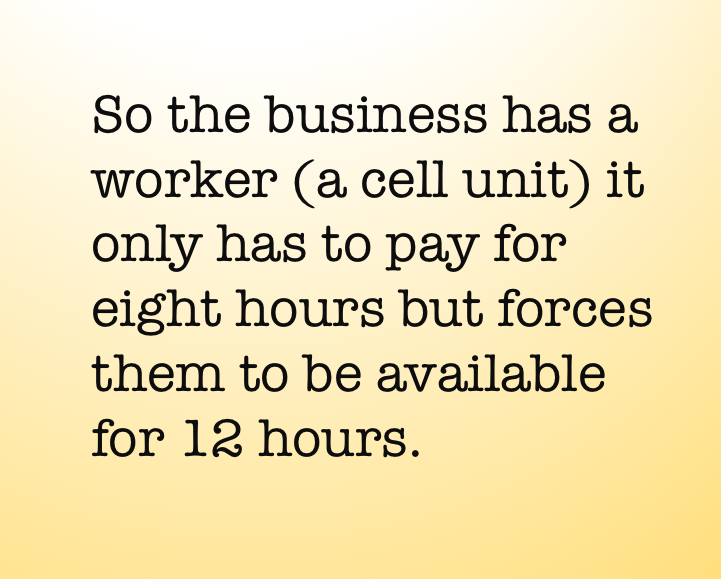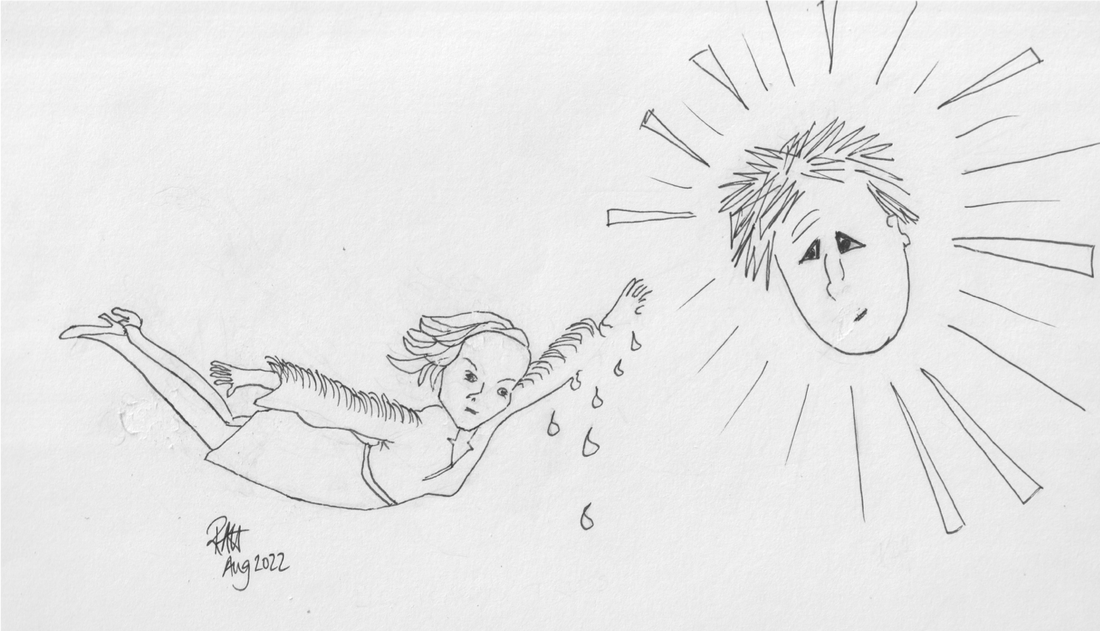|
Just over eight years ago I was writing about an art installation in the RDS. As a flashback Wednesday blog I'd like to share it again today.
8 June 2014 I spent this morning invigilating (policing actually, sans uniform) at the RDS exhibition of the Student Art and National Craft Awards. This diverse and engaging array of art and craft is all home grown – just what we need during these globally troubled times. I was delighted to see that Julianna Szabo has some striking work featured: a three-dimensional paper cut illustration of Dublin City centre with Stephen’s Green and Grafton Street. A sculptural series by Camilla Hanney constructed from desiccated fish bones and displayed in an antique chest, is called Fish out of Water (not for sale so don’t get too attached). The pieces look like delicate shells - ethereal and beautiful. On the craft side Fiona Harrington’s Deserted Cottage is the Lace category winner – her framed abstract landscape, which uses both a traditional and unconventional approach to lace, is a fine-tuned balance of design, art and craft. Sorry, too late. Already sold. I also set my eyes on Saidhbhín Gibson’s semi-decomposed holly leaves ‘mended’ with needlepoint lace, which mimics the decorative venation of the leaves. Alas (but no surprise) that one gone too. The RDS Award of Excellence went to Eleanor Irwin’s A cabinet of Natural Curiosities: wasps, bees, mineral rocks, butterflies, sea coral and cacti are created out of cotton threads and thin copper wire crocheted and embroidered in layers. Up close these are simply stunning. But the compassionate piece that almost moved me to tears I must write about. This is not a piece that a photograph conveys well – the photograph reduces it to a two-dimensional grotesque. It is only by seeing it live and experiencing it that you can come to your own conclusion, and reflect on your own personal reaction. Consequences of a Life Lived is the title Conor Frizzelle gives to his installation. It is a representation of an old Irish bachelor’s house by way of a room, but exposed to us as half-a-room, into which we stare, like on a film set; so we are at once the viewer and the voyeur. The inspiration for the work comes from Conor’s uncle who lived alone all his life (this info is in the catalogue notes). In this room there is the life-sized model of a man sleeping in an arm-chair, head thrown back, mouth agape; he snores gently, his head also moves gently. Around him there is a scene of neglect in a gathering pile detritus. A cigarette burning down between his fingers has a teetering totem pole of ash about to fall off - and this same ash grey dust lies embedded in and around his fingers, just where thousands of other cigarettes have been. Time is standing still in this snapshot. Papers are strewn on the floor, old records, empty bottles, dirty plates; a typewriter on the table; an airmail pen-written letter on his lap is about to slip to the floor. But, it is the massive tumorous growth pouring out of the back of his head - a lumpen veined ugly mass contained within his skin, twice the size of his head and stretching towards the floor - that is profoundly shocking and disturbing. It is hard to believe that such a growth could be possible. I watched others viewing the exhibit, the sadness etched on their faces as they grappled with the story being told and what it meant; that it wasn’t a fictional horror story; it was a representation of a life known. And I wonder if the artist had, as a young boy, witnessed his uncle in this state, and later, in trying to make sense of the world through his child’s eyes, the depiction became a gross exaggeration. But I fear it is actually close to the truth; this is the world of his uncle; it’s as close a representation as he can get, in making this documentary piece. I am struck that this is how this artist wants to express himself: in this honouring of his uncle’s story, warts and all. An existential loneliness pervades this piece. We are all alone; and we only meet others on the bridges that we sometimes build between our islands. See it if you can. This is art of consequence. Exhibition ends Sunday 10th August 2014 More info about this installation is available online (including a video). Search for Conor Frizzelle, artist, Consequences of a Life Lived. #Art #Installation #Life The "cell unit" of capitalism
Karl Marx observed in Das Kapital that "wage-labour is the basic 'cell-form' (trade unit) of a capitalist society” (Wikipedia). A business will be cold-hearted about the feelings of the trade unit whether it is machine or human. The more productive a cell-unit is per hour the more the business owner can turn a profit. Businesses game the system and the labour laws to maximise profit. A good example is the split shift in the food service industry. An eight hour day Roster worker from 11am-3pm Lay worker off 3-6pm Roster worker from 6pm – 11pm So the business has a worker (a cell unit) it only has to pay for eight hours but forces them to be available for 12 hours. The worker has no dignity trapped in a low paid job with lousy conditions. What do they do during those three unpaid hours while they wait for the next shift to start? Find other work? Hang around in the park? Go to the library? Go to a café and spend money they can’t afford? Go home if they’re lucky enough it is nearby? In addition to this our laws changed some years ago so that workers are no longer paid anything extra on weekends or bank holidays. The industry especially needs its workers working hard those days (while all the rich people spend their surplus on eating out). But the worker has zero social life, working Friday, Saturday, Sunday and getting home late every night, exhausted. Not much to live for except the miserable wage. The right to dignity This is unconscionable and an exploitation of humans — a form of trafficking going on under our noses. All politicians should stand up for workers who are looking for better conditions. Their role as public representatives must be to help their constituents negotiate (their offerings of human capital) with employers, whether in the public or private sector. When the social agency of workers is being crushed by the system, there is no 'society' and we cannot call ourselves civilised. Ireland should change the law, go on record as no longer willing to support this sort of unfettered capitalism that has gripped the western world. Everyone has the right to dignity in the workplace. Politicians, it is time to step up no matter what your political hue happens to be: red, green or blue. © Alison Hackett, posted 8 Aug 2022 |
AuthorAlison Hackett — Director and founder of 21st Century Renaissance; author of The Visual Time Traveller 500 Years of History, Art and Science in 100 Unique Designs Archives
February 2023
Categories |
ReviewsThe Visual Time Traveller
This is a labour of love, insanity, beauty and, perhaps, an attempt to reintegrate history, art and science together again. Simon Cocking Irish Tech News Crabbing Her range of language is both staccato and soft, in succinct verse, which encourages you to read this aloud, truly the best way to engage in the emotional depth of a poem. Deirdre Conroy Sunday Independent Poetic Licence in a Time of Corona Your poems tell us all we need to know Ryan Tubridy, RTE Radio podcast |
CONTACTNOT RETAIL
21st Century Renaissance The Glasshouse Harbour Court, George's Place Dun Laoghaire, A96 R8CT Co. Dublin, Ireland E [email protected] VAT number 3761911TH |
© Twenty-First Century Renaissance Ltd 2022 Associate member of Publishing Ireland; Member of Independent Publisher's Guild All rights reserved



 RSS Feed
RSS Feed